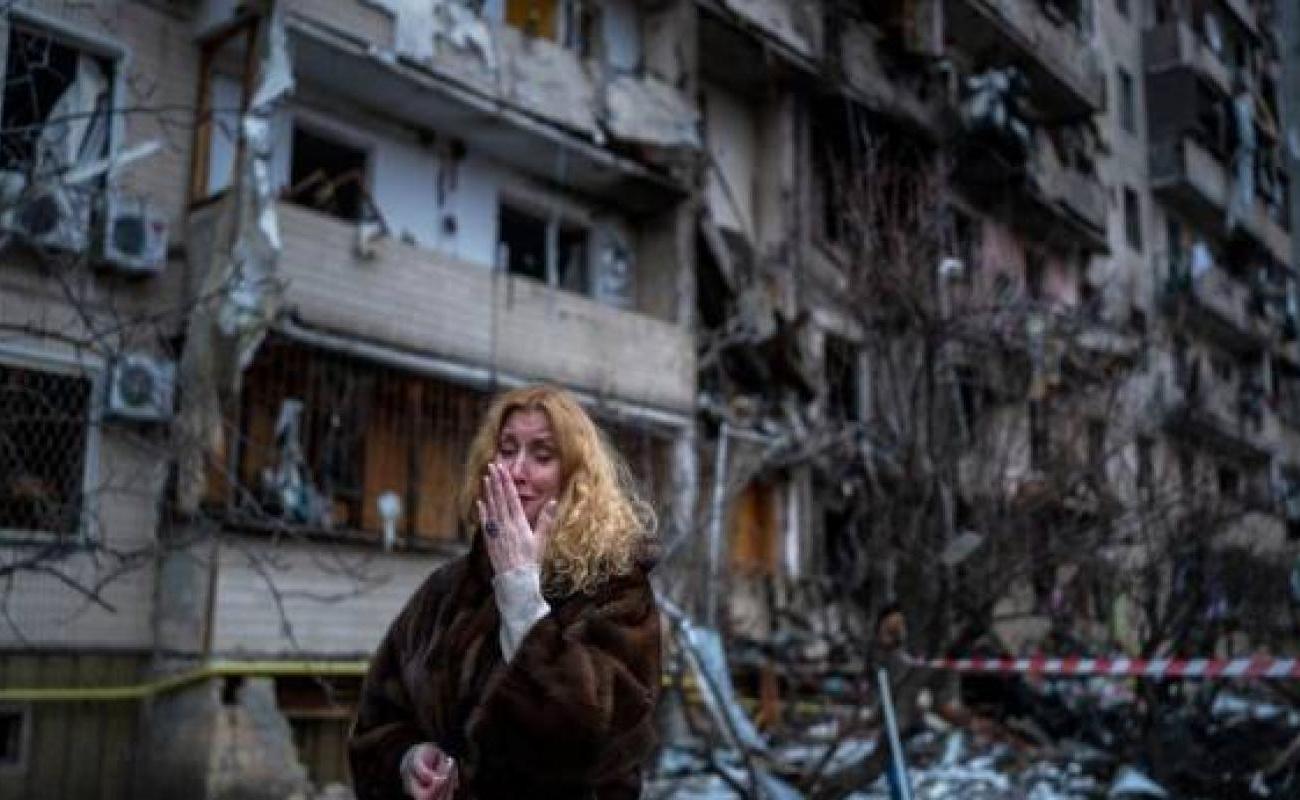Rape as a weapon: huge scale of sexual violence inflicted in Ukraine emerges
Women and girls have recounted the abuse they have suffered at the hands of Russian soldiers

Women across Ukraine are grappling with the threat of rape as a weapon of war as growing evidence of sexual violence emerges from areas retaken from retreating Russian forces.
The world was horrified on Sunday by a picture taken by the photographer Mikhail Palinchak on a highway 20km outside the capital, Kyiv, in which the bodies of one man and three women were piled under a blanket. The women were naked and their bodies had been partially burned, the photographer said.
The harrowing image adds to a mounting body of evidence that summary executions, rape and torture have been used against civilians in areas under Russian control since the Kremlin launched the invasion of its neighbour on 24 February.
Particularly difficult for many to comprehend is the scale of the sexual violence. As Russian troops have withdrawn from towns and suburbs around the capital in order to refocus the war effort on Ukraine’s east, women and girls have come forward to tell the police, media and human rights organisations of atrocities they have suffered at the hands of Russian soldiers. Gang-rapes, assaults taking place at gunpoint, and rapes committed in front of children are among the grim testimonies collected by investigators.
“We have had several calls to our emergency hotline from women and girls seeking assistance, but in most cases it’s been impossible to help them physically. We haven’t been able to reach them because of the fighting,” said Kateryna Cherepakha, the president of La Strada Ukraine, a charity that supports survivors of trafficking, domestic violence and sexual assault.
“Rape is an underreported crime and stigmatised issue even in peaceful times. I am worried that what we learn about is just going to be the tip of the iceberg.”
Rape and sexual assault are considered war crimes and a breach of international humanitarian law, and both Ukraine’s prosecutor general and the international Criminal Court have said they will open investigations into reported sexual violence. But what currently seems like a far-off possibility of justice has done little to assuage Ukrainian women’s fears of what may yet happen in a war that is far from over.
Antonina Medvedchuk, 31, said that when she woke up to the sound of bombing on the day the war broke out, the first things she grabbed before leaving the north suburbs of Kyiv were condoms and scissors to use as a weapon to protect herself.
“Every break between curfew and bombing I was looking for emergency contraception instead of a basic first aid kit,” she said. “My mother tried to reassure me: ‘This is not a war like that, they don’t exist anymore, they are from old movies.’ I have been a feminist for eight years, and I cried in silence, because all wars are like this.”
It is not only Russian soldiers Ukrainian women may have to protect themselves from. In Vinnytsia, a town in the west of the country, a teacher reported to police that a member of the territorial defence services dragged her into the school library and tried to rape her. The man was arrested.
Organisations such as La Strada Ukraine and a countrywide network called Feminist Workshop have been working online and with local government to distribute information about medical, legal and psychological support available for victims of sexual assault, and are trying to find safe shelters for women and girls fleeing both the war and domestic violence.
They fear, however, that the trauma caused by the use of rape as a military tactic will lead to deep suffering across Ukrainian society for years to come.
“When a woman gets away it looks like she’s safe, she’s far away from the guns and the man who raped her,” said Sasha Kantser, external affairs manager for Lviv Feminist Workshop, which has helped hundreds of displaced women and girls since the war broke out.
“But the trauma is a bomb inside her, that follows her. The scale of what is happening now is heartbreaking.”
